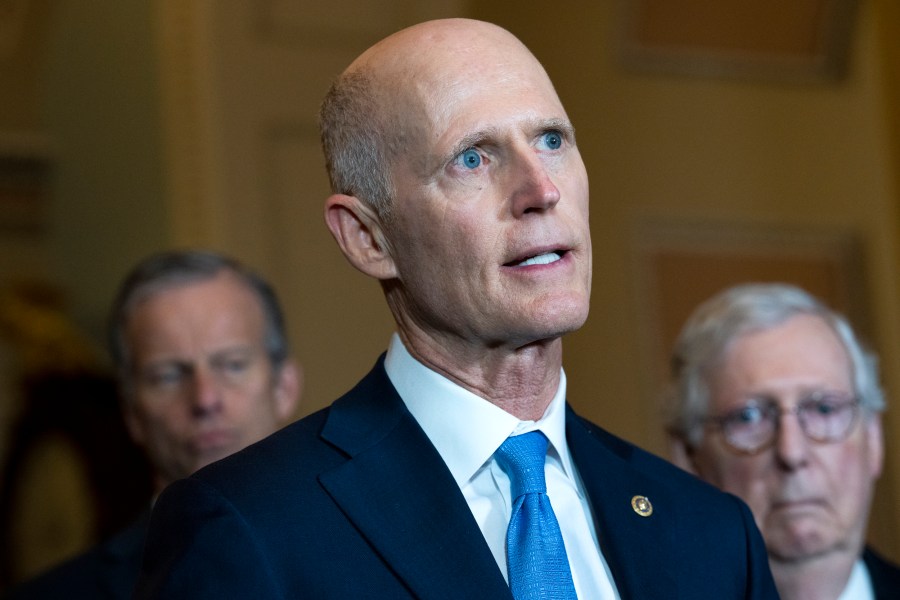It’s been nearly a month since Republican Sen. Rick Scott, ignoring his fellow GOP leaders’ wishes, unveiled a 31-page blueprint, outlining the far-right ideas he wants his party to pursue after this year’s midterm elections. It’s become controversial for a great many reasons, though one element in particular has become especially problematic for the Floridian:
Scott’s plan called for income tax increases on tens of millions of lower-income Americans.
When Democrats pounced, the GOP senator initially turned to Fox News in the apparent hopes of making the controversy go away. On Feb. 22, Sean Hannity asked Scott, “Did you see Chuckie Schumer saying that your plan is to raise taxes on more than half of Americans? I didn’t see that in your plan. Did you have that in your plan?” The Republican replied, “Of course not.”
It was an odd denial, given the plain text of his own plan, but nearly a month later, Scott is still trying to tell people not to believe their lying eyes.
Yesterday, for example, NPR aired excerpts from an interview with the senator.
“I’m not going to raise anybody’s taxes, but I want to have a conversation. We’ve got able-bodied Americans who are living off of government programs instead of working, and that’s caused by these Democrat [sic] policies. And that doesn’t work. We got billionaires that are not paying, you know, income taxes. So we — can’t be the only taxpayers are what our retirees put in and what our hardworking Americans are putting in, and they’re paying all the taxes.”
After saying he’s “not going to raise anybody’s taxes,” Scott went on to tell NPR, “I’m not going to raise taxes…. I want to create a system where we’re all in this together. But I’m not raising taxes. I don’t believe in tax increases.”
This is quite strange.
The Florida Republican literally put his idea in writing: “All Americans should pay some income tax to have skin in the game, even if a small amount. Currently over half of Americans pay no income tax.”
In other words, tens of millions of American adults currently don’t pay federal income taxes because they don’t make enough money to qualify. As we’ve explained before, Scott, a member of the Senate Republican leadership, proposes changing that: He envisions a tax system in which those who don’t make enough money would have to pay more than they pay now.
Not to put too fine a point on this, but that’s what “tax increase” means. It’s not even an especially partisan point: Senate Minority Leader Mitch McConnell has also described Scott’s blueprint as a plan “that raises taxes on half the American people.”
If Scott wants to abandon this part of his agenda, fine. But the GOP senator appears to be trying a different tack, proposing a tax hike while pretending he isn’t proposing a tax hike.















